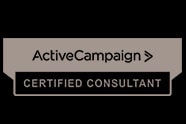Many physicians treat their website as simply a place to store specialty and contact information. While it’s true that this information does have its place, to have such a bare-bones website is a disservice to the 72 percent of people who use the Internet to find health information. People need your help, but you need their help too. By cultivating a motivated and informed patient base, you can help people to take charge of their health, making your patients happy and healthy – and more likely to refer you to others.
Informative Content on Procedures
Lead Magnets
Today’s consumer is Web-savvy and in constant need of information. Potential patients want to know as much as possible before committing to anything. By producing content that serves as lead magnets, you can help people to become more comfortable with your practice while simultaneously educating them about their own health issues.
Creating blogs, videos, eBooks and infographics provide a tremendous service to both your current patients as well as your potential new additions. Going out of your way to make sure people know exactly what to expect from their medical conditions, as well as how you’d go about treating them, goes a long way towards currying goodwill from nervous new patients. As these individuals acquire more information about your specialty and your practice, they’ll be even more comfortable, increasing the chances of those people becoming long-term patients.
Informative Pages for Each Procedure
Instead of going the minimalist route, as many physicians have done, you should do just the opposite and inform prospective patients about everything you do. This approach accomplishes two objectives. First, it helps to ensure that people who search for doctors who perform a given procedure will find you via a search engine. Second, this method allows patients to become more educated about their health. At the same time, the frequent publication of informative content cements you as an expert within your area of expertise, making your website a destination for anyone who wants information about your specialty area.
Responsive Design
It’s not enough to simply have the best content. Instead, making that content accessible is what will really drive your reach. The key to achieving this reach is a mobile-friendly site design that looks great on any device.
In today’s world, 60 percent of all Web traffic is conducted on mobile devices. What’s more, a third of smartphone users access the Internet primarily through their phones. In other words, you have to meet people where they are – and if people are using their phones to gather information about their health, you have to make sure your site meets their needs.
There’s a reward for going mobile-friendly that goes above and beyond throwing a bone to your patients. Google places a high premium on sites that have a functioning mobile version. More specifically, sites that don’t display well on mobile devices are heavily penalized by the search engines. Since the vast majority of online health seekers begin looking for information through a search engine, it’s a good idea to do what’s necessary to appease Google.
A mobile version of your website shouldn’t just have fewer images and clunky navigation bars. It has to make everything easier for the viewer, and that includes accessing your contact information. If you have a form that people can fill out to download white papers or sign up for your email list, make sure it’s visible and that it can be easily filled out from a smartphone or tablet.
Information on You and Your Credentials
Virtually anyone who has used the Internet to search for anything has been fooled or misled at least once. Simply talking a good game might not be enough to seal the deal for some potential patients. You also have to show patients who you are, above and beyond your medical knowledge.
An “about” page is a standard on most business websites and with good reason. People want to know who they’re doing business with. This is a place to list your credentials, your education and your employment history. Making this information publicly available will give you, even more, credibility. Additionally, you can list some information about your personality – your interests, your hobbies, the names of your pets or kids. This might not seem like a huge deal, but it will help patients to get to know you better. The more they feel like they know you, the more comfortable they’ll be letting you manage their health.
Posting a video to your site is another good way to show people who you are. This isn’t a commercial; instead, it’s simply a way for you to introduce yourself to people who have never met you. It allows people see another side of your personality, and it enables them to visualize what an appointment with you might be like.
Your website isn’t simply a placeholder where people can find your phone number. Instead, it’s a window into who you are and what you do, and it’s a great way to demonstrate your expertise to the entire world. To learn more about what a great website can do for your practice, click here contact HIP Creative today.










